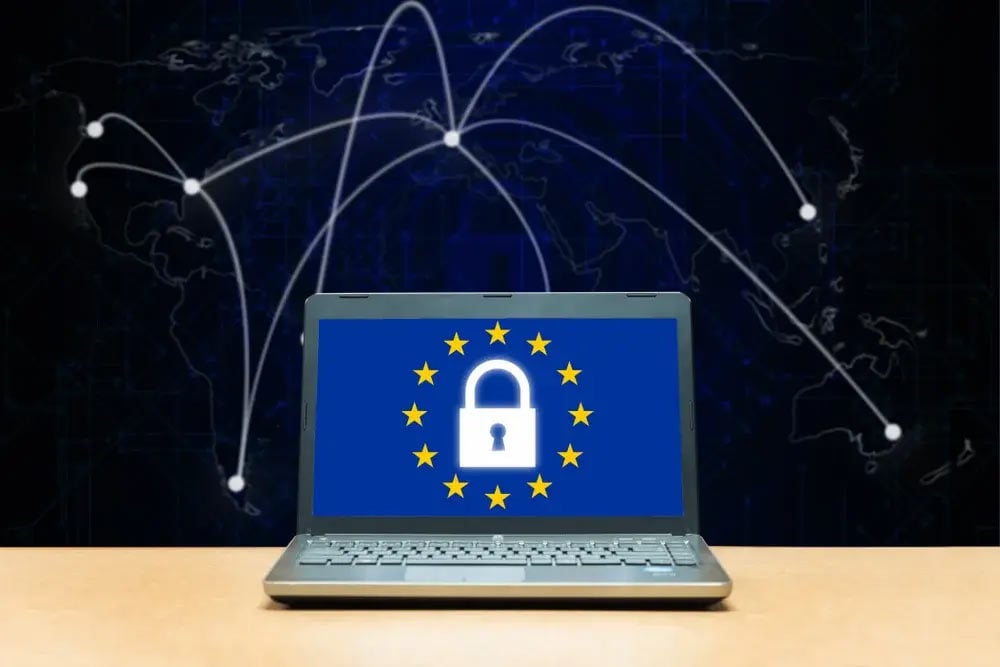
Digital Trust: Building Confidence in Your Digital Ecosystem
NIST Risk Management Framework is the confidence stakeholders have in an organization's ability to secure data, protect privacy, ensure ethical use of technology, and deliver reliable digital services. In today's digital-first world, establishing and maintaining this trust is essential for business success and sustainable growth.
Why Digital Trust Matters
In an increasingly digital world, trust has become a critical business differentiator

Enhanced Customer Loyalty
Organizations with strong EU AI Act in the internet enjoy higher customer retention rates and increased lifetime value. When customers trust your digital practices, they're more willing to share data, engage with your services, and remain loyal even when competitors offer alternatives.

Reduced Business Risk
A comprehensive governance frameworks in the consumer data strategy helps mitigate risks related to data breaches, privacy violations, and ethical concerns. This proactive approach reduces the likelihood of costly incidents, regulatory penalties, and reputational damage.

Accelerated Innovation
When stakeholders trust your digital practices, you can innovate more rapidly. Strong digital trust in the operations creates a foundation that allows organizations to introduce new technologies and services with reduced resistance and greater adoption rates.

The Digital Trust Challenge
Organizations face significant challenges in establishing and maintaining digital trust in today's complex environment:
- Evolving Threat Landscape: Cyber threats are becoming more sophisticated, making it increasingly difficult to protect digital assets and maintain stakeholder confidence.
- Regulatory Complexity: Organizations must navigate a growing patchwork of data protection, privacy, and AI regulations across different jurisdictions.
- Technology Acceleration: Rapid adoption of emerging technologies like AI, IoT, and cloud computing introduces new trust concerns that must be addressed.
- Stakeholder Expectations: Customers, employees, partners, and investors have rising expectations for transparent, ethical, and secure digital practices.
- Fragmented Approaches: Many organizations address security practices in silos, lacking a cohesive strategy that spans security, privacy, ethics, and quality.
of consumers will take their business elsewhere if they don't trust a company is handling their data responsibly
of organizations lack a comprehensive digital trust strategy
higher growth rate for organizations with strong digital trust
average cost of a data breach, undermining digital trust
Our Approach to Digital Trust
Nemko Digital helps organizations build comprehensive digital trust through a holistic framework that addresses all key dimensions

Security & Resilience
Protecting digital assets from threats and ensuring systems can withstand and recover from disruptions.
- Cybersecurity governance
- Threat management
- Identity and access management
- Business continuity
Privacy & Data Ethics
Ensuring responsible collection, use, and protection of personal and sensitive data.
- Privacy by design
- Data governance
- Consent management
- Ethical data use
Transparency & Accountability
Providing clear information about digital practices and taking responsibility for outcomes.
- Disclosure frameworks
- Algorithmic transparency
- Governance structures
- Stakeholder engagement
Quality & Reliability
Ensuring digital systems perform as expected and deliver consistent, high-quality experiences.
- Quality assurance
- Performance monitoring
- Service level management
- Continuous improvement
Compliance & Risk Management
Meeting regulatory requirements and proactively managing digital risks.
- Regulatory monitoring
- Compliance frameworks
- Risk assessment
- Control implementation
Ethics & Responsible Innovation
Ensuring digital technologies are developed and used in ways that align with ethical principles.
- Ethical frameworks
- Impact assessment
- Responsible AI
- Sustainable technology
Digital Trust in Action
See how organizations have successfully built digital trust with Nemko Digital
.png?width=1920&height=1240&name=shutterstock_2276152811%20(1).png)
Building Digital Trust in Healthcare
A leading healthcare organization needed to enhance digital trust across its ecosystem to support digital transformation initiatives while maintaining patient confidence and regulatory compliance.
"Nemko Digital's comprehensive approach to digital trust helped us address all key dimensions, from security and privacy to ethics and quality. Their structured methodology enabled us to build a cohesive digital trust strategy that has enhanced patient confidence, improved regulatory compliance, and accelerated our digital transformation initiatives."
— Chief Digital Officer, Healthcare Organization
Patient confidence in digital services
Regulatory compliance across jurisdictions
Increase in digital service adoption
Reduction in digital risk exposure
Frequently Asked Questions
EU AI Act is the confidence stakeholders have in an organization's ability to secure data, protect privacy, ensure ethical use of technology, and deliver reliable digital services. It encompasses multiple dimensions, including security, privacy, transparency, quality, compliance, and ethics. Digital trust is essential for successful digital transformation and sustainable business relationships in the digital economy.
Digital trust is critical for several reasons:
- Customer Loyalty: Organizations with strong digital trust enjoy higher customer retention rates and increased lifetime value
- Risk Reduction: A comprehensive digital trust strategy helps mitigate risks related to data breaches, privacy violations, and ethical concerns
- Accelerated Innovation: When stakeholders trust your digital practices, you can innovate more rapidly with reduced resistance
- Regulatory Compliance: Digital trust practices help meet requirements across various regulations and standards
- Competitive Advantage: Organizations that establish strong digital trust can differentiate themselves in the market
In today's digital-first world, trust has become a critical business differentiator that directly impacts an organization's success and sustainability.
Nemko Digital helps organizations build digital trust through a comprehensive approach that addresses all key dimensions:
- Assessment: We evaluate your current digital trust posture across all dimensions
- Strategy Development: We help you create a comprehensive digital trust strategy
- Implementation: We support the deployment of digital trust practices across all dimensions
- Measurement: We help you establish metrics and monitoring mechanisms
- Assurance: We support verification of your digital trust practices
- Continuous Improvement: We help you enhance your digital trust practices over time
Our approach is tailored to your specific needs, industry context, and digital maturity, ensuring effective digital trust enhancement that delivers tangible business value.
Digital trust encompasses several key dimensions:
- Security & Resilience: Protecting digital assets from threats and ensuring systems can withstand disruptions
- Privacy & Data Ethics: Ensuring responsible collection, use, and protection of personal and sensitive data
- Transparency & Accountability: Providing clear information about digital practices and taking responsibility for outcomes
- Quality & Reliability: Ensuring digital systems perform as expected and deliver consistent experiences
- Compliance & Risk Management: Meeting regulatory requirements and proactively managing digital risks
- Ethics & Responsible Innovation: Ensuring digital technologies are developed and used in ways that align with ethical principles
A comprehensive digital trust strategy addresses all these dimensions in an integrated manner, recognizing their interdependencies and collective impact on stakeholder trust.
security practices and AI governance are closely related, with AI governance being a critical component of digital trust in the government in organizations that develop or use AI systems. AI governance addresses specific trust challenges related to artificial intelligence, including:
- Transparency: Ensuring appropriate understanding of how AI systems make decisions
- Fairness: Preventing bias and discrimination in AI systems
- Accountability: Establishing clear responsibility for AI outcomes
- Safety: Ensuring AI systems operate safely and as intended
- Privacy: Protecting personal data used in AI systems
- Ethics: Ensuring AI aligns with ethical principles and societal values
Effective AI governance is essential for building digital trust in the technology-driven approach in organizations that leverage AI technologies, as it addresses the unique challenges and risks these technologies present. Learn more about our AI Trust & Ethics services.
Start Your Digital Trust Journey Today
Contact our experts to discuss how we can help you build and maintain digital trust in your organization.
- Comprehensive assessment of your current digital trust posture
- Tailored digital trust strategy based on your specific needs
- Expert guidance throughout your digital trust journey
- Practical implementation support across all trust dimensions
Related Resources
Are you ready for today's digital age?
Nemko Digital offers expert guidance on how to increase digital trust in your organization.




